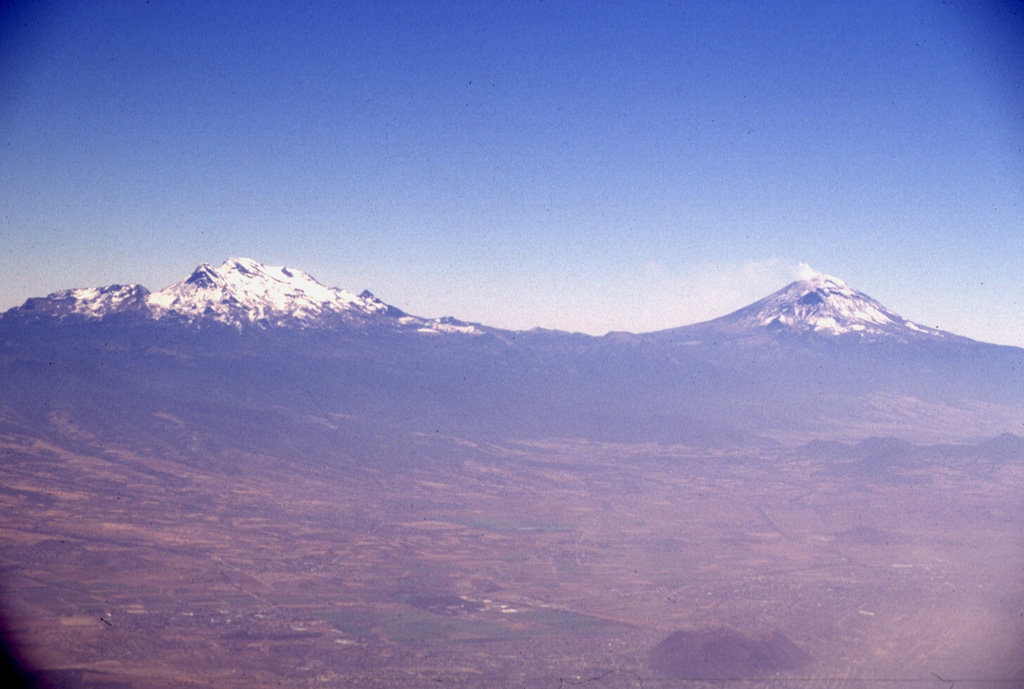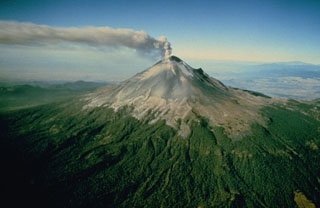Global Volcanism Program | Image GVP-05521

Iztaccíhuatl (left) and Popocatépetl (right) seen east of the Valley of Mexico. The differing profiles of the two volcanoes are due to varying styles and durations of volcanism. Iztaccíhuatl's elongate form reflects migration of volcanism over long periods of time along a NNW-SSE trend; it is largely Pleistocene in age, and has been extensively eroded. The more symmetrical Popocatépetl is much younger and has more-localized vents.
Photo by Lee Siebert, 1997 (Smithsonian Institution).
![]() This image is made available under the Public Domain Dedication CC0 license, but proper attribution is appreciated.
This image is made available under the Public Domain Dedication CC0 license, but proper attribution is appreciated.
Keywords: stratovolcano | emissions | gas | gas plume | plume

Popocatépetl

Iztaccíhuatl
